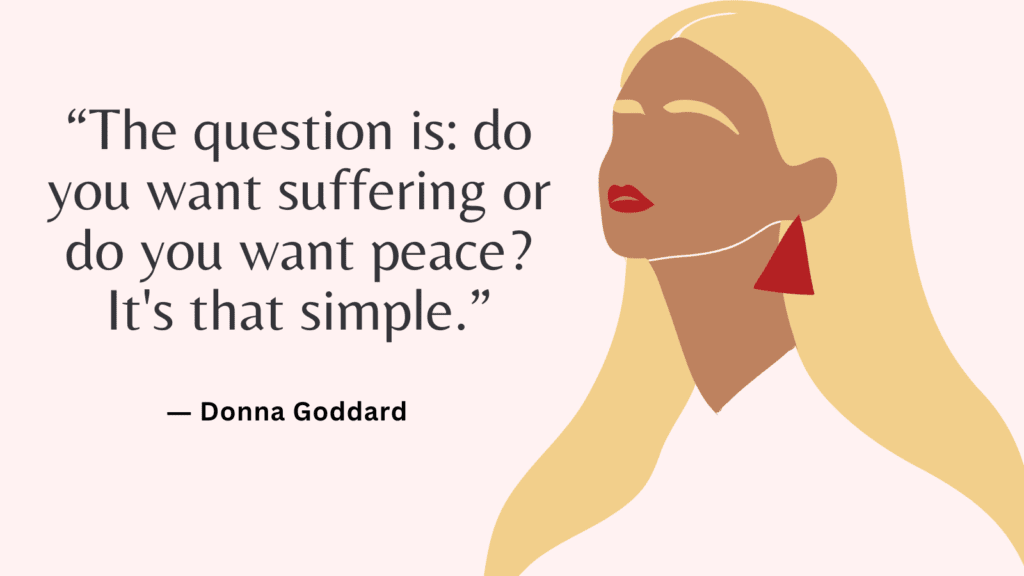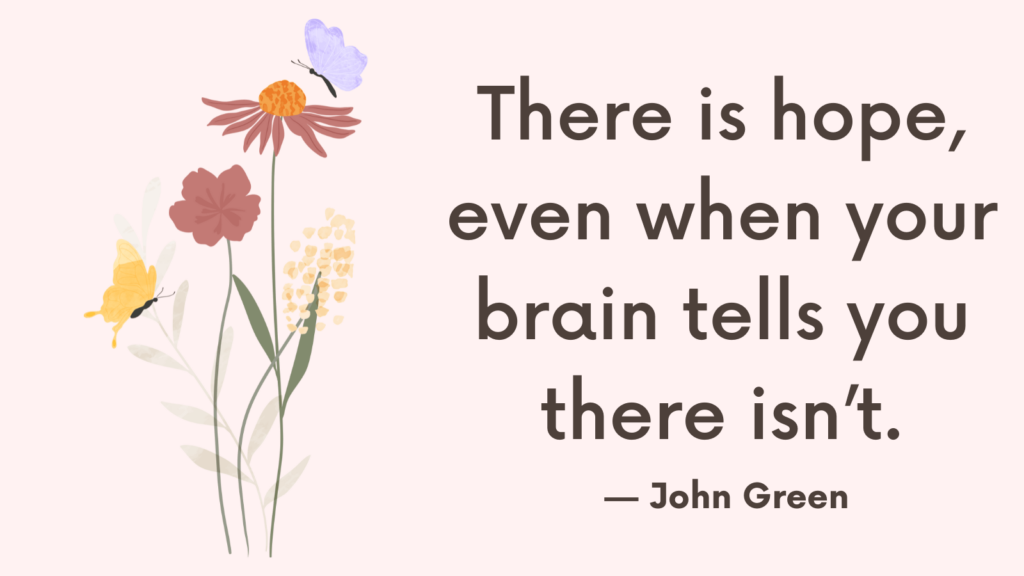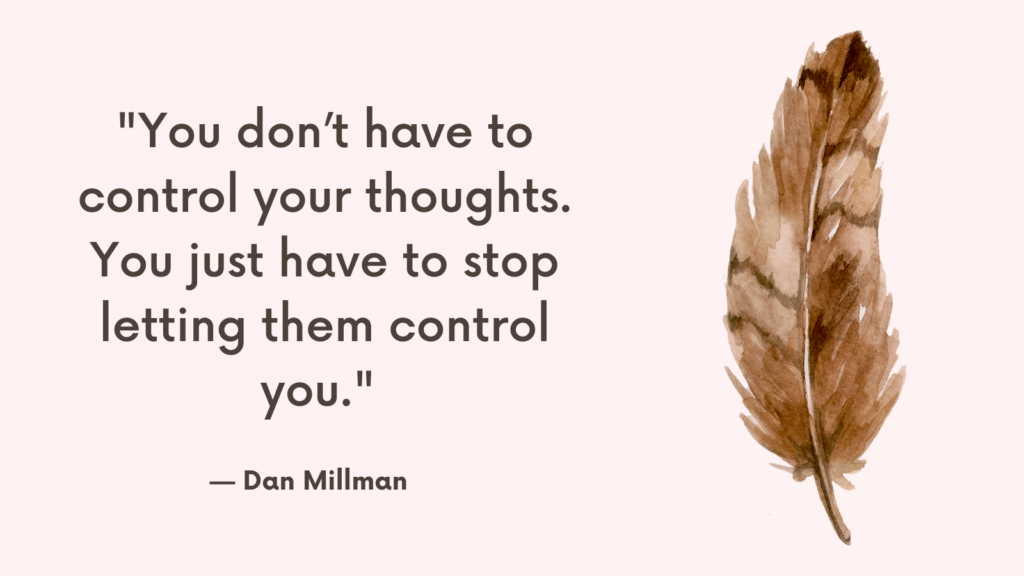In this post, you’ll learn all about rational detachment.
What Is Rational Detachment
Rational detachment is the ability to detach oneself from a situation or emotions in an objective and logical manner.
It involves being able to step back, observe the situation or emotions without becoming overwhelmed or overly attached to them, and make rational decisions based on a clear understanding of the facts and circumstances involved.
Rational detachment can be a useful tool in managing stress, anxiety, and other difficult emotions, as it allows individuals to analyze situations objectively, rather than being influenced solely by their emotional reactions.
Related: Top 10 Tips On How To Practice Stoicism (For a Good, Happy Life)
Rational Detachment Examples
Some examples of rational detachment include:
1. When you receive criticism, instead of reacting defensively, you take a step back and objectively evaluate if there’s any truth in what was said.
2. When you experience a negative feeling like anger or sadness, you acknowledge the emotion without getting swept up in it. You try to observe and understand what triggered the emotion rather than suppressing or ignoring it.
3. When you face a difficult decision, you take time to consider all possible options before making a choice. You try to detach from any emotional biases or attachments to certain outcomes.
4. When someone disagrees with you, you listen and try to understand their perspective instead of trying to convince them of your own.
5. When something goes wrong, instead of blaming yourself or others, you analyze the situation calmly and objectively to figure out what can be done differently in the future.
Related: How Resilience Works? Top 10 Powerful Ways to Stay Healthy and Happy During Tough Times
Benefits of Rational Detachment
Rational detachment can help you lead a more fulfilling life in several ways:
1. Reducing Stress And Anxiety
By detaching yourself from emotional responses, you are less likely to get caught up in stressful or anxious situations. This can lead to a more peaceful and relaxed state of mind.
2. Improving Decision-Making
By approaching situations more objectively, you are able to see things more clearly and make decisions based on facts rather than emotions.
This can lead to better outcomes in both personal and professional settings.
3. Increasing Empathy And Understanding
Rational detachment involves understanding that emotions can cloud judgment and hinder understanding.
By stepping back and seeing situations from a more objective perspective, you can increase empathy and understanding toward others.
4. Fostering Healthier Relationships
Rational detachment can lead to healthier relationships by reducing conflict and allowing for better communication.
By detaching from emotional responses, you are less likely to get defensive or overreact, leading to more productive conversations and stronger connections with others.
Related: How To Stop Self-Critical Thoughts Using These Top 10 Techniques
The Principles Behind Rational Detachment.
There are several principles behind rational detachment, including:
1. Objectivity
Rational detachment requires us to be objective and look at situations without any biases or preconceived notions.
We must be willing to accept new information and change our beliefs if necessary.
2. Focusing On Facts
Instead of relying on emotions or assumptions, we should focus on the facts and evidence available.
This helps us make informed decisions and avoid making decisions based on personal biases.
3. Emotional Regulation
We must learn to regulate our emotions and manage stress effectively.
This helps us remain calm and rational even in high-pressure situations.
4. Open-Mindedness
Being open-minded and willing to consider alternative perspectives is key to rational detachment.
It allows us to see multiple sides of a situation and make better decisions as a result.
5. Cognitive Flexibility
Rational detachment requires cognitive flexibility, which means being able to shift our thinking and adapt to changing circumstances.
This helps us stay focused on our goals and adjust our strategies accordingly.
Related: Top 10 Practical CBT Exercises For Generalized Anxiety Disorder Relief
How to Cultivate Rational Detachment?
Here are some ways to cultivate rational detachment:
#1. Practice Mindfulness
Mindfulness meditation can help you become more aware of your thoughts and emotions without getting caught up in them.
It can also help you develop a non-judgmental attitude towards yourself and others.
Mindfulness Practice
The following is a mindfulness practice to try:
1. First, find a comfortable and quiet place where you can sit or lie down without any distractions.
2. Close your eyes and take a deep breath in, then slowly exhale.
3. As you continue breathing deeply, start to focus your attention on the physical sensations of your body. Feel the weight of your body on the chair or bed, notice any areas of tension or discomfort, and try to release them as you exhale.
4. Next, bring your attention to your thoughts. Notice them as they come and go, without judgment or attachment. If your mind starts to wander, gently bring it back to your breath, or to the physical sensations of your body.
5. Take a few more deep breaths, and when you’re ready, slowly open your eyes.
Related: Best 6 Mindfulness Exercises For Beginners (+FREE Resources)
#2. Observe Your Thoughts And Feelings
When you notice that you’re feeling strong emotions or having negative thoughts, take a step back and observe them without judgment.
Try to understand where they’re coming from and why you’re experiencing them.
The following prompts can help you observe your thoughts and feelings:
- What is currently on my mind?
- How am I feeling right now?
- What triggered this thought or feeling?
- Is this thought or feeling helping or hindering me?
- What physical sensations am I experiencing along with this thought or feeling?
- How can I care for myself in this moment?
- What thoughts or feelings keep recurring in my mind?
- Is there something that I need to process or let go of?
Related: Top 21 Emotional Writing Prompts To Process Emotions
#3. Practice Acceptance
Accept that you can’t control everything that happens in life and that sometimes things won’t go as planned.
Learn to accept these situations without attaching too much importance or emotion to them.
Related: Top 7-Day Acceptance Challenge For A Peaceful Life
#4. Challenge Your Assumptions
Often, our thoughts and emotions are based on assumptions and beliefs that may not be entirely accurate.
Challenge these assumptions by looking for evidence that contradicts them, and consider alternative perspectives.
The following prompts can help you challenge your negative beliefs:
- What evidence do you have that supports this negative belief?
- Have you considered alternative explanations for what’s happening?
- What would you say to a friend who was experiencing the same negative belief?
- How would your life be different if you didn’t hold on to this negative belief?
- Is there any situation in which this negative belief has not been true or valid?
- What might happen if you chose to let go of this negative belief?
- Are there any positive aspects or outcomes that could be associated with the belief being false?
- What if this belief is just a thought and not necessarily the reality?
- Where did this negative belief come from and do you want to continue to let it hold power over your life?
Related: Negative Core Beliefs List (& 8 Tips On How To Challenge Them)
#5. Seek Balance
Try to balance your emotions and thoughts by adopting a more rational perspective.
Look for evidence and facts instead of relying on emotions when making decisions.
Related: How To Live A Peaceful Life? 101 Timeless Principles to Find Peace Within Yourself

Overcoming Common Challenges to Practicing Rational Detachment
Practicing rational detachment can be challenging, especially when you are used to being emotionally invested in certain situations or people.
Here are some common challenges and how to overcome them:
1. Guilt
You might feel guilty for not being emotionally invested in a situation or person that you were previously attached to.
To overcome this, remind yourself that your detachment is not a personal weakness or failing, but a healthy way of coping with the situation.
2. Fear
You might fear that by being detached, you will come across as cold or heartless.
But rational detachment is not about suppressing your emotions, but about balancing them with rational thinking.
Related: How to Overcome Fear In Life? 5 Actionable Steps To Conquer Fear And Get Unstuck
3. Emotional Triggers
Certain situations or people might trigger intense emotional reactions, making it challenging to maintain detachment.
In this case, practice mindfulness and self-reflection to understand your emotional triggers and work on managing them.
4. Maintaining Boundaries
Sometimes, practicing detachment means creating boundaries and saying “no” to certain people or situations.
This can be difficult if you are used to pleasing others, but it’s important to remember that setting boundaries is not selfish, but necessary for your own well-being.
Related: Top 25 Tips On How To Set Boundaries In A Toxic Relationship? (+FREE Worksheets PDF)
5. Grief
Letting go of emotional attachments can also bring feelings of loss and grief.
Allow yourself to feel these emotions, but also remind yourself that detachment is a healthy way to move forward and create new and positive experiences in your life.
Conclusion
Rational detachment refers to the practice of observing your thoughts and emotions without becoming attached or controlled by them.
By practicing rational detachment, you can develop a clearer, more balanced perspective, and make better decisions with less emotional bias.
Remember that cultivating rational detachment is a process that takes time and practice. Be patient with yourself and try to approach it with a curious, open-minded attitude.
FAQ
How can rational detachment help me feel better?
Rational detachment helps by allowing you to step back from your emotions and view situations objectively.
This can help you gain a clearer understanding of the underlying causes of your distress and develop more effective coping strategies.
Isn’t rational detachment just suppressing my emotions?
No, rational detachment is not about suppressing or denying your emotions.
It’s about acknowledging and understanding them while also considering rational and objective factors.
It’s a way of incorporating logic and reason alongside your emotional response.
Can rational detachment help with anxiety or stress?
Yes, rational detachment can be particularly helpful for managing anxiety and stress.
By stepping back and analyzing your thoughts and emotions from a more objective standpoint, you can identify negative thinking patterns or irrational beliefs that contribute to your anxiety.
This enables you to challenge and reframe those thoughts more effectively.



